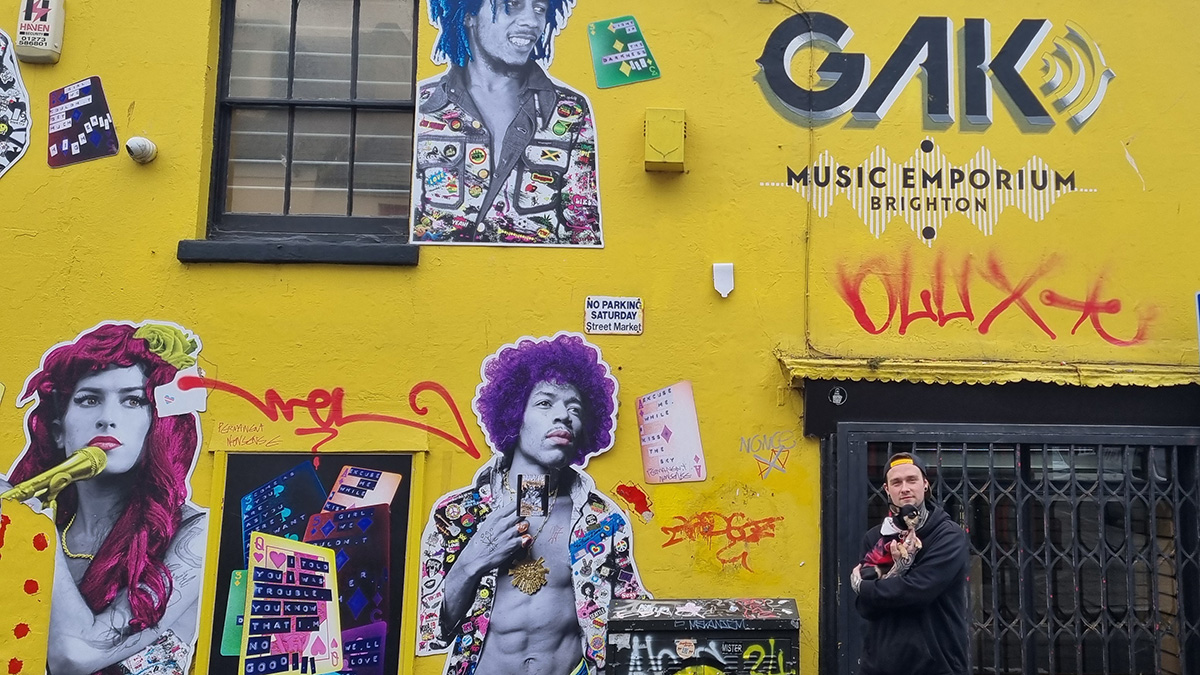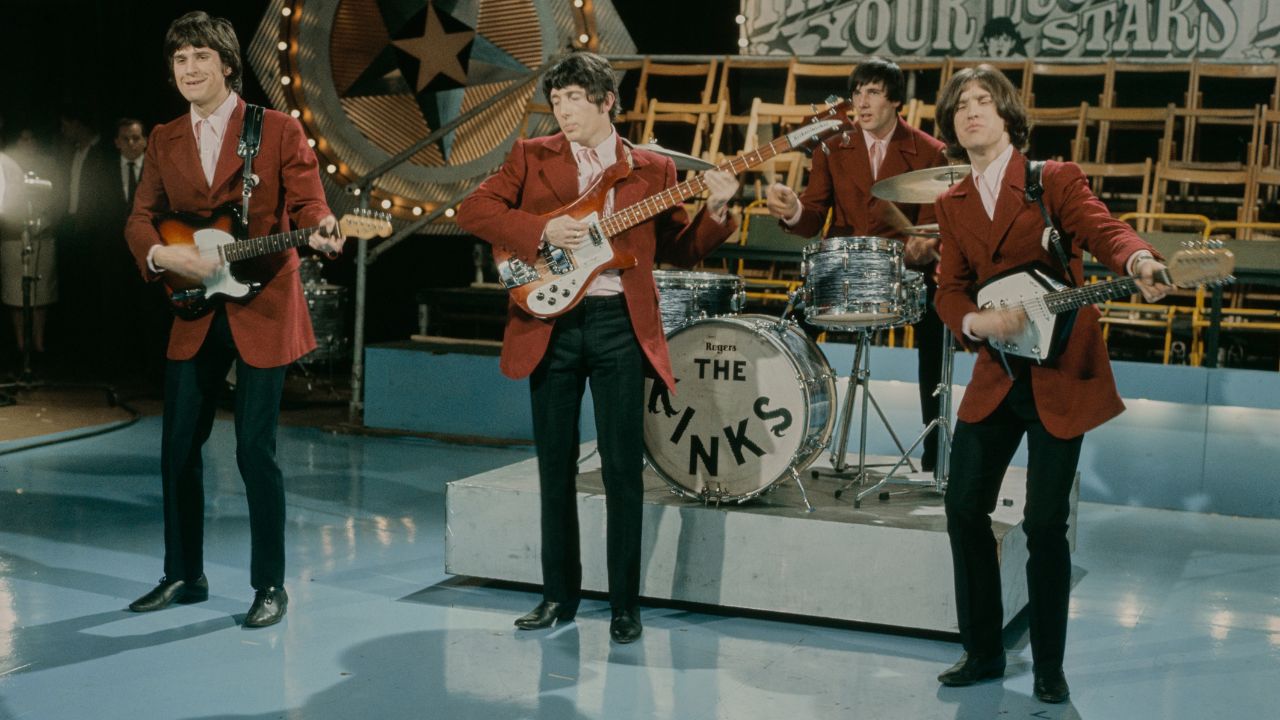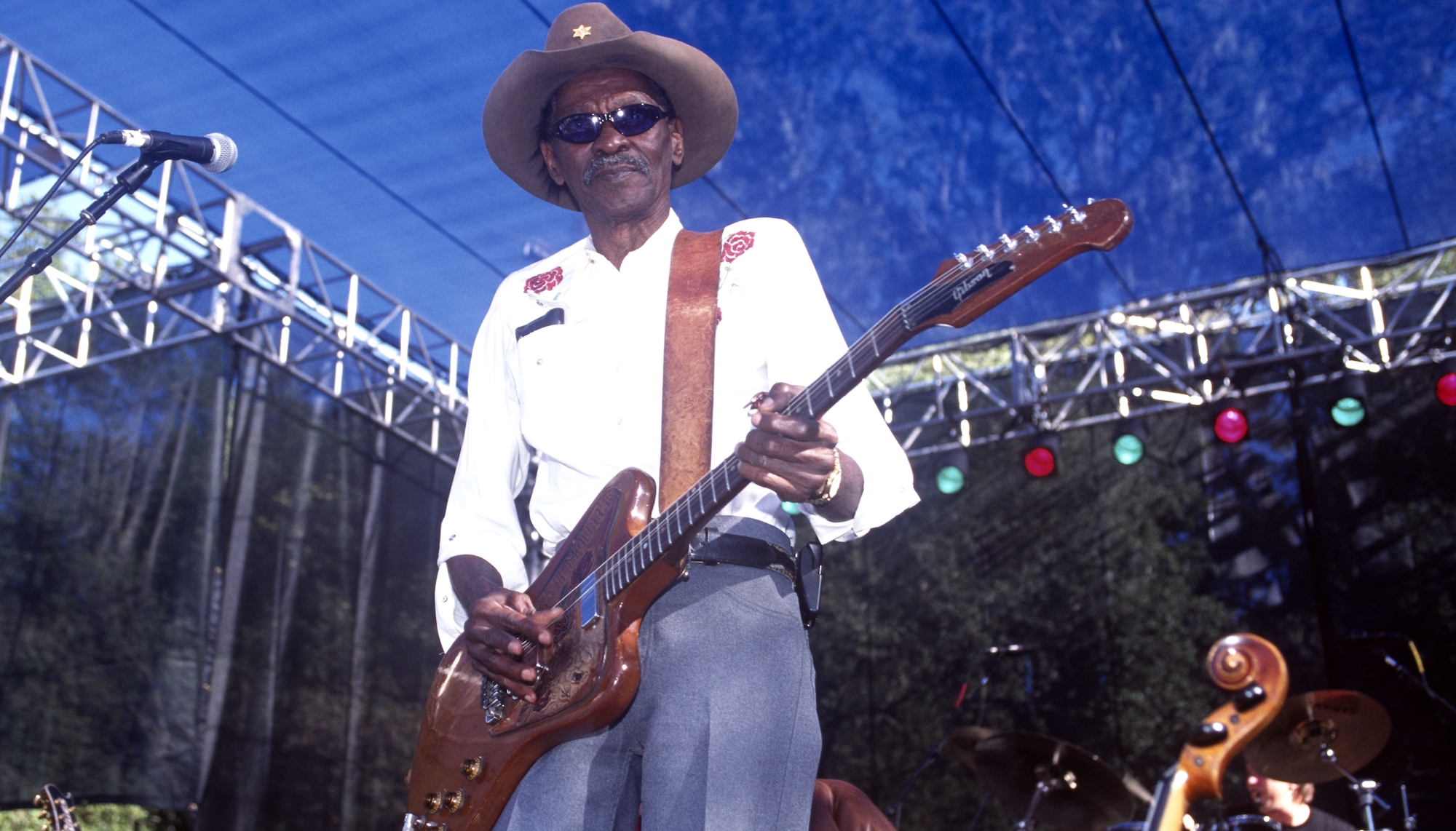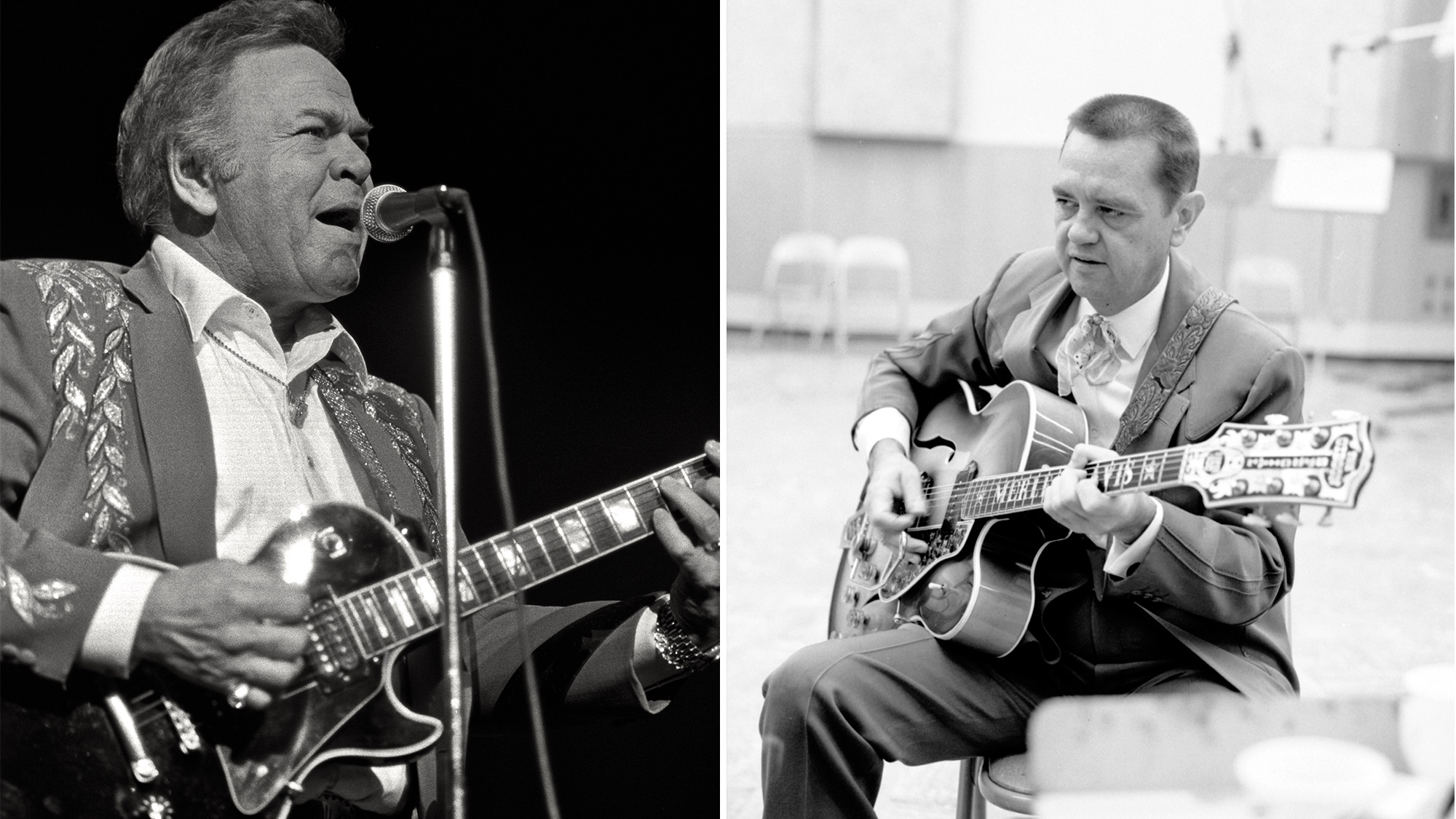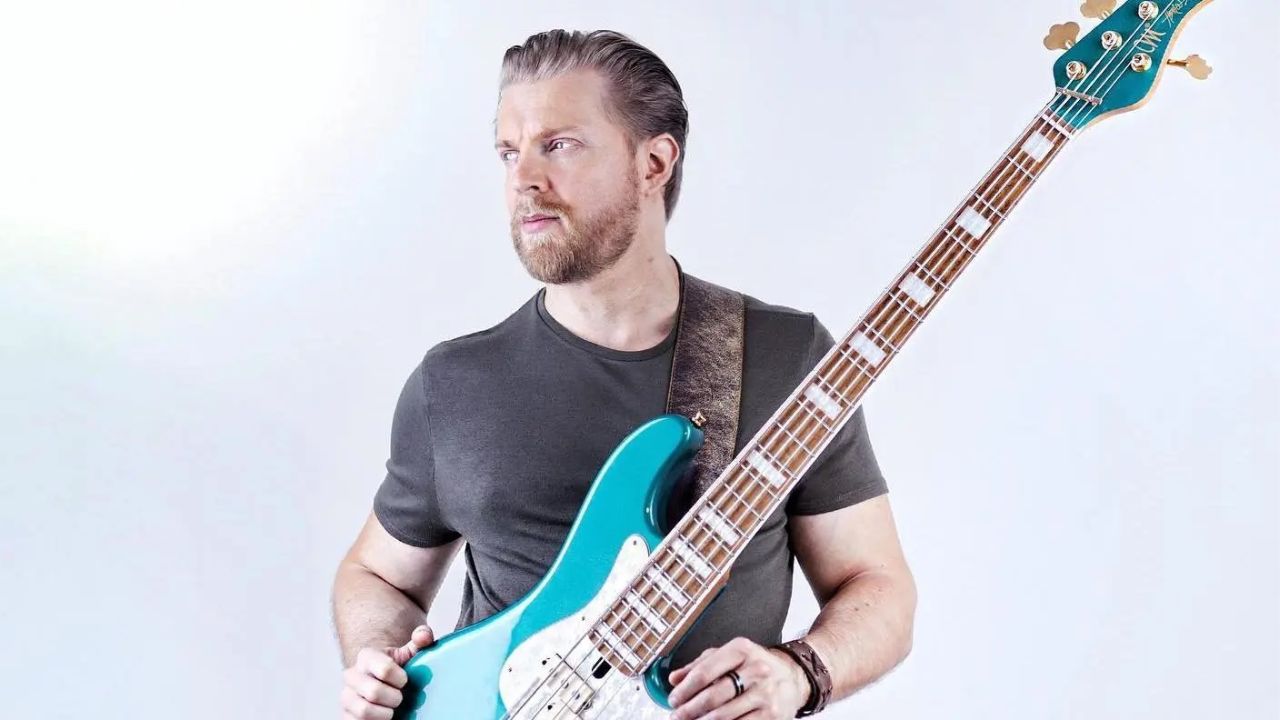Dear Guitar Hero: Nancy Wilson
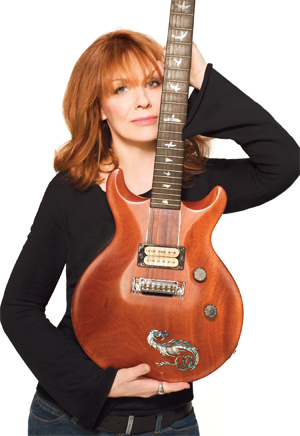
Originally published in Guitar World, October 2010
She’s the guitarist for Heart, the wife of filmmaker Cameron Crowe and one of the most notable female ax slingers in rock. But what Guitar World readers really want to know is…
Growing up, who were your guitar heroes? Were they all male, or did any female guitarists inspire you to play? —Sir John General
There have never been a lot of female guitarists out there, so most of my influences were male. Acoustically, I followed Joni Mitchell and Paul Simon. Also, John Lennon and Paul McCartney—both incredible acoustic guitar players. And this might sound strange, but Elton John had a big impact on me. I used to transpose a lot of his piano parts to the guitar. Neil Young, too—one of my favorites on both acoustic and electric.
After Jimi Hendrix, Heart were the first act from Seattle to make a mark. Do you feel as though you’re overlooked as part of that city’s musical heritage? —Max Yagoda
I don’t think we’re overlooked as Seattle musicians. You know, there were so many great musicians who came out of the Seattle area before Jimi Hendrix—the Wailers [considered the first garage-rock group] and the Sonics are just some of them. Heart weren’t part of a movement like grunge; we were our own kind of movement. I think it’s extremely cool that we came from Seattle, and we became friends with so many musicians from the city.
Heart have had many members over the years. In your opinion, is the present lineup the best, or do you prefer a different era of the band? —Johnny Pasek
Get The Pick Newsletter
All the latest guitar news, interviews, lessons, reviews, deals and more, direct to your inbox!
I think the present lineup is the best. Actually, this lineup has been together longer than the original Heart. I know that first impressions are usually the best, but I think the people who comprise Heart right now are just fantastic. We’ve played together long enough to have that kind of musical shorthand that you see with great bands. We jam, we wing it. There’s a great kind of ESP going on now that we never used to have.
I’m a mother of two, but I also play in a rock band. Do you find it hard to be a mom and a rocker at the same time? —Frances Ann
[laughs] Now, that’s a great question! The answer is definitely yes. But you know, I would say it’s hard to be a mother and any kind of career woman. Being a musician can be particularly difficult, though, because you have to travel so much. You don’t want to miss things as your kids grow up. You want to be around for their school functions and things. Sometimes you can take them on the road with you, but it’s not like they’re just footballs you can tuck under your arm. They’re people and they need to have their lives. Yes, it can be extremely hard to raise a family and have a rock band.
I hear a lot of different tunings in your music. Do you use a drop-D tuning? If so, when did you first hear that and who inspired you? —Fred Everly
Yes, I use a lot of drop-D, but I also use a double drop-D [DADGAD]. Those tunings are pretty standard in a lot of rootsy folk-rock music like Crosby, Stills and Nash. Neil Young, too, used a lot of those tunings. Jimmy Page was a big fan of drop-D and double drop-D. And Joni Mitchell—I don’t think she ever used standard tunings at all! [laughs]
I always thought of myself as a “magic man,” but I want to ask you your definition of “magic man.” —L.R.
[laughs] Well, I think a “magic man,” a man who’s truly magic, is someone who’s quite romantic and spiritual and has that special…I don’t know…“thing” that would attract a “rockin’ girl.” [laughs] There are a lot of magic men out there, so if you consider yourself one, well, all right!
Although your sister, Ann, sings lead on most Heart songs, you’ve sung quite a few yourself. Do you feel as though you don’t get your due as a singer? —Les Gorney
I really love singing. I love singing harmony, mostly. Generally, I think of myself as a guitar player, but when I do find the right song to sing lead on, I try to do my best. I mean, Ann has such an incredible voice—her gift just dropped out of the sky. I don’t pretend to compete with that. So I feel no sense of imbalance there. I’m happy to do whatever singing is needed on my part.
Heart have some amazing riffs. “Barracuda” is my all-time favorite. If you had to pick your favorite Heart riff, which would it be, and why? —Joel Holland
One of my favorites is the intro to “Mistral Wind” [from 1978’s Dog & Butterfly]. It’s not one of our better-known songs, but I’ve always liked it a lot. When I wrote that part, it sounded very dissonant and odd to me, but it really worked with the words. I’m very proud of the way the riff married with the lyrics.
I understand that Heart have a new album coming out soon. What can we expect? Are there any radical changes to the band’s sound? —T. Cecere
Yes, we do have a new album out soon called Red Velvet Car. I wouldn’t describe it as having any radical changes, but I think the acoustic guitars are more aggressive than ever. The way we recorded the acoustics, you get every inch of the wood sonically. I think when people hear this album they’ll be surprised at how acoustic guitars can almost out-rock electrics when they’re played and recorded in certain ways. But there are a lot of electrics on it, too.
Even though you’ve done some ballads, Heart have always been a rock band, and a cool one at that. Why do you think you managed to stay cool when so many other bands started to get cheesy? —Jack Foster
[laughs] That’s a really well-worded question! I think we’ve managed to avoid cheesiness by remaining authentic. By that, I mean, we’ve always tried to stay creative in our own way. We don’t always go out and do the summer tours where you play the hits; rather, we’ll stay off the road and write and make new albums. We never tried to follow trends; we always tried to stay vital.
Because [director] Cameron Crowe is your husband, does that make it harder or easier to work on his soundtracks? Do you ever tell him, “I’ll stick to the music, you stick to the filmmaking”? —Gary Kanopka
In some ways, it’s been very hard for me to be involved in his films. A lot of people assume it’s kind of a “teacher’s pet” syndrome going on. It’s a drag when you get that sense that people are thinking, Oh, of course the guy’s wife gets to score the film. They don’t know that I had to work three times harder to prove that I was qualified. And Cameron is pretty hard to please. He has very specific ideas of what he wants on a musical level, which is probably more than a lot of directors and writers.
In the early days of the band, you were romantically linked with Heart’s guitarist Roger Fisher, while Ann was going out with his brother and the band’s manager, Mike Fisher. How did you avoid a “Fleetwood Mac situation”—you know, the whole band/soap opera thing? —Nick Sterling
[laughs] Who’s saying we did avoid it? No, we definitely had our own Fleetwood Mac situation. For a while, we were embroiled in a triangle, and that was really tough. When the pressures and the success got bigger, we went through a lot of horrible stuff. It was a difficult process to update the band in a way where Ann and I were the leaders and took control. The first lineup of the band was basically the one that played clubs. It was hard to go through certain changes. Yeah, we definitely had our own soap opera going on.
I’ve seen you play a few different guitars, but you always look the coolest when playing a Les Paul. Do you consider it to be the ultimate rock guitar? —M.L. D’Amico
Yes, I do. Stratocasters have always been too clean and jazzy-sounding to me. I like the big rock sound. The Jimmy Page Les Paul Custom—the three-pickup Black Beauty—that’s pretty cool. But I play an Epiphone Elite, which is lighter than the Les Paul Custom. Those are some pretty heavy guitars, and they can really hurt your shoulders after a while. My buddy Jerry Cantrell even had to get his shoulder worked on because he was playing his Les Paul too much. So I like my Elites. They’re loud, screaming rock guitars, and they’re light.
“Damn, that guy could shred. Can you imagine what that would have sounded like?” Wednesday 13 says the late Alexi Laiho once came close to joining him and Slipknot’s Joey Jordison in Murderdolls
“Chuck Berry's not a very good guitar player. He's a clown. He runs all over the guitar, just like any one of these old rock players would do, and makes no sense”: Clarence “Gatemouth” Brown pulled no punches when speaking about his fellow guitar heroes
